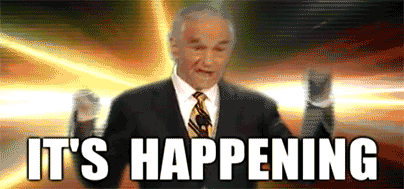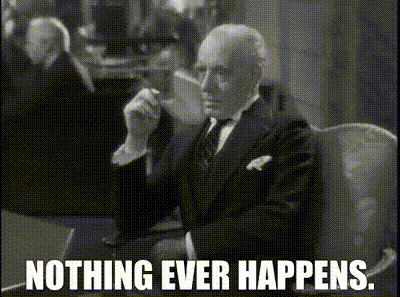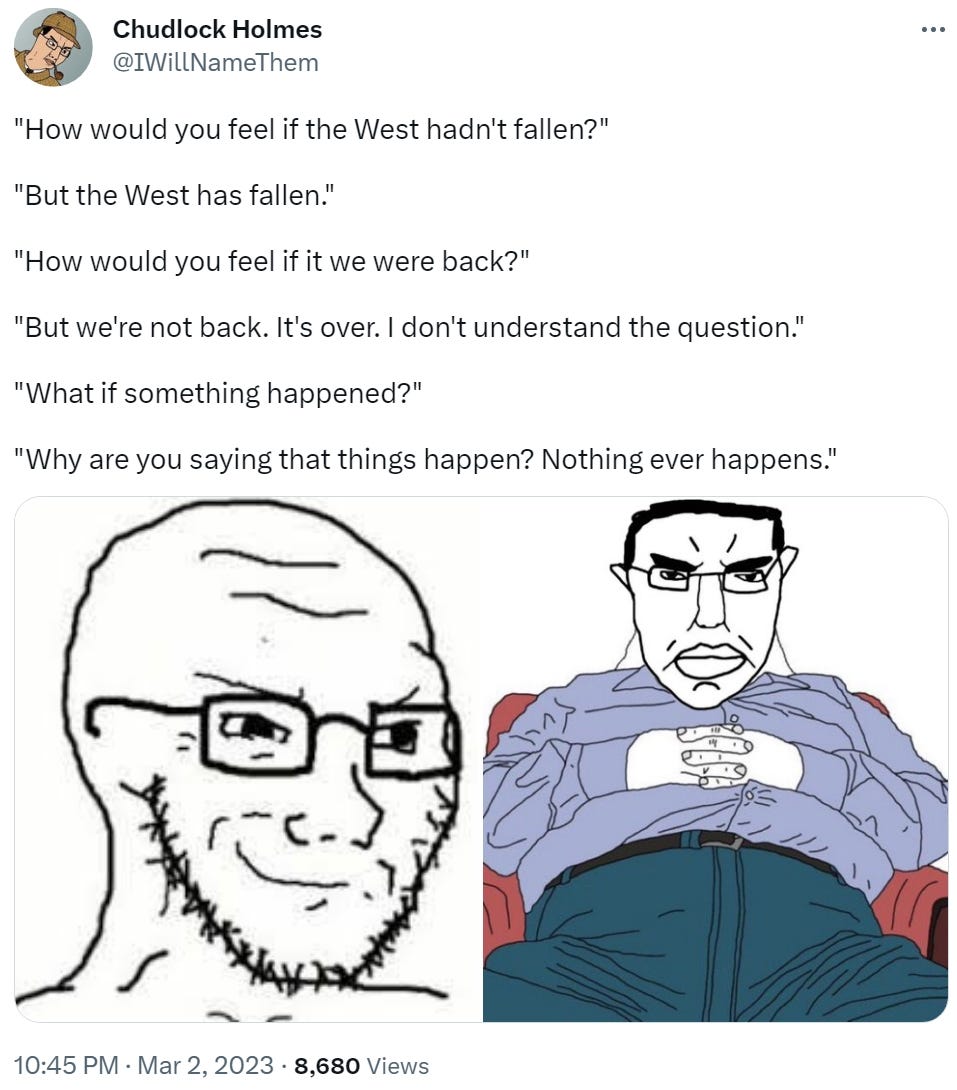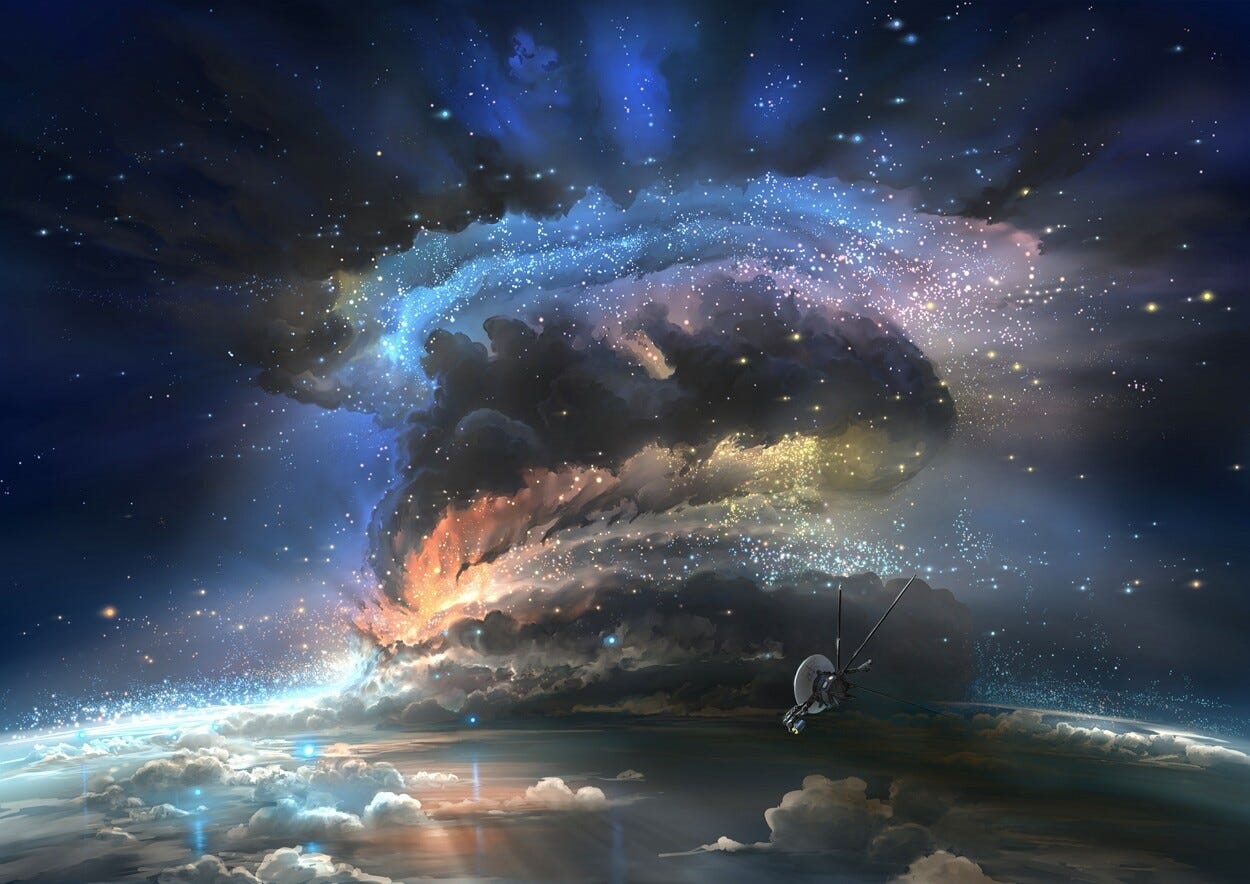Over the weekend everyone got whiplash the Wagner Private Military Contractor’s sudden rebellion/mutiny/coup d’etat/contract negotiation against their employers in the Russian Ministry of Defense. On Friday evening, as the SMO’s command base in Rostov was seized and an armoured column rolled towards Moscow shooting Hinds out of their air, the Internet was full
The Neocon-American Tranny Operation cheerleading squad were breathlessly predicting that this was it for Putler. Pro-Russian bloggers were insisting that Prigozhin had taken Langley’s forty pieces of silver. Others were saying that Prigozhin was coming for his rivals in the Russian MoD, who had been betraying the war effort all along.
Whatever was happening behind the scenes, it was all moot by Saturday afternoon. Lukashenko negotiated a ceasefire, Wagner’s CEO and former caterer Prigozhin tucked tail and ran to Belarus, Putin magnanimously forgave all involved of charges of treason (although leaving open the possibility of corruption charges), and the uprising or whatever-it-was came to an unceremonious end, with it looking like Wagner will simply be folded into the Russian military. As a result, everyone was all
I have no idea what really went down there, and I’m not even going to attempt to try. What I’m interested in here is why we so often hear that refrain: Nothing Ever Happens.
The basic pattern always seems to be the same. There is a happening, which is greeted with a sort of euphoria. The memes flow, and a good time is had by all. Then, in short order, the happening is over, and everyone looks around at a world that doesn’t seem to have changed very much, and we sigh: Nothing Ever Happens.
A short glance at the historical highlights of the Terrible Twenties so far makes this sentiment very strange on the face of it. We’re only two-and-a-half years into the worst decade in living memory, and a very great deal has happened. The decade kicked off with a bioengineered virus escaping from the lab (maybe by accident, maybe not), which precipitated biomedical tyranny straight out of dystopian scifi powered by network-enabled mass psychosis. As a direct result of this, the majority of the human species are now genetically modified mutants thanks to multiple injections with an mRNA gene therapy serum. The US presidential election was stolen in broad daylight in full view of the entire planet, resulting in a hundred thousand supporters storming Congress, which in turn resulted in hundreds of political prisoners being thrown away to rot. The presidential election in Brazil was also stolen, leading to weeks of violent unrest. The most logistically sophisticated mass protest in history was organized by Canadians of all people, in the freezing depths of the Canadian winter of all times, with the result that the government of Canada, and most other governments around the world, dropped almost every aspect of the COVID mandates. The first great power war in almost eight decades kicked off with Russia’s surprise invasion of the Ukraine, leading the illegitimate and incompetent US regime to shred its credibility as holder of the global reserve currency by attempting to weaponize the financial system against one of the belligerents, and also leading that same gangster regime to commit the largest act of state-sponsored environmental terrorism in history by blowing up the Nordstream pipeline, thereby consigning its “allies” in Western Europe to energy poverty for the foreseeable future. The largest beer brand in American history, an edifice as seemingly immutable as the Hoover dam, got absolutely rekt by a spontaneous boycott following its partnership with a mentally unwell man who identified as a successful marketing campaign ... right on the eve of Greatest Sin Month, no less. After decades of rising very slowly, total tonnage of material in orbit has suddenly gone exponential, and people are getting Internet access from swarms of nanosatellites. Artificial intelligence has more or less passed the Turing Test, which it turns out is not a good indicator of consciousness, not that this matters one way or another to the utility of artificial intelligence. Oh, and the US government has more or less admitted that the UFO phenomenon is real, that they are actively studying it, and that there is a very good chance that We Are Not Alone and they have not just the footage (which we’ve seen) but the wreckage (which we haven’t) to demonstrate it.
Those are just the highlights, leaving quite a bit out – Blacks Looting and Murdering, for example, or the shift to remote work and the consequent commercial real estate doom loop, both of which are converting our cities into rubble-strewn wastelands.
By any measure the last few years have been incredibly eventful.
And yet, we still have this sense that Nothing Ever Happens, this unshakeable feeling of stasis.
Partly this is because every time something does happen, it never quite lives up to our expectations. Decades of Hollywood programming, for example, primed us to think that within weeks of the dreaded bioweapon escaping from the lab, we’d be scurrying like rats in the depopulated zombie-haunted wreckage, fighting the cannibal wasteland gangs for gas cans and MREs. Instead we were locked in our apartments for six months and got fat watching Netflix. Similarly, everyone was on the edge of their seats expecting Trump to cross the Rubicon on Jan 6th, declaring himself God-Emperor and putting Congress in front of firing squads. Instead he went golfing and let his supporters get vanned. The Russian-Ukrainian conflict settled down almost immediately into a high-tech war of attrition resembling nothing so much as the frozen trench lines of the Great War, with both sides hunkered down in their fortifications as they try to avoid getting blown up by the long-range high-precision rocket artillery that makes any large concentration of forces a death sentence.
The refrain of Nothing Ever Happens is a scream of frustration with a world that seems stubbornly, agonizingly slow to change. Our minds are used to inhabiting the holograms of movies and video games, in which centuries can pass in the blink of an eye, events unfolding at the speed of narrative. The Internet, too, has accustomed us to events racing forward at the luminal cadence of fiber-optic cables: rapid-fire 2x speed podcasts, livestream chats racing by as thousands of listeners fire off their emojis and comments, the infinite social media scroll in which there’s always a thousand new things to laugh at or rage at, where a tweet can suddenly go viral, you blink and you’ve got millions of eyeballs reading you, thousands of replies piling up. Then we emerge from our caves rubbing our bloodshot eyes after ten hyperstimulated hours on the couch, tweeting and binge-watching and gaming, back into the world of atoms where, sure enough, nothing has happened. It’s the same boring world it was before, which seems almost perverse given how much has happened online.
It isn’t only frustration with the obstinately stable material world. There’s a sense of urgency: this corrupt and retarded political regime we live under, this fake and gay social order we’re forced to inhabit, is death. If you’re on the left, it’s killing the planet by giving it a fever. If you’re on the right, it’s murdering your culture, erasing your traditions, and setting your ethnos up for genocide. Both left and right rail against the rapacious piracy of the system, with the only disagreement being over whether it is primarily the corporation or the state that is at fault ... although there’s much less disagreement over that nuance these days than there used to be, with the right at least readily conceding that the rentier capitalism of the financial parasites is every bit as much to blame as the state, that they’re just two sides of the same debased coin, and cheerfully despising both.
All of this needs to change. The system needs to be brought down, and something better erected in its place. But despite the endless dissertations of esoteric political philosophy that pour fourth from our Internet statesmen, despite all the hot takes, despite all the facts and logic, from day to day, the system remains.
Nothing changes.
Nothing ever happens.
Or at least, so it seems.
Change in the world rarely happens rapidly, on the human experiential timescale. I think even the way we interact with history obscures this. We read books where lifetimes pass in a paragraph, and in which civilizations rise and fall in the space of a single chapter. All of that human experience gets compressed under the weight of time, like geological strata that thin down centuries into millimetres of dirt: all of the boring bits, the long stretches of ordinary, day-to-day life, get tossed out, leaving only the significant events, resulting in the illusory sense that the significant events are all that there was. Our own memories work the same way: if we’re bored for an hour, or a year, time seems to stretch endlessly while we’re trapped in that boredom, but once it’s over our minds simply discard it, and it’s as though it never happened. I’ve seen many people say that it felt like no time passed at all during 2020, as though the whole year simply hadn’t happen, like we went to sleep on New Year’s in 2019 and woke up in 2021.
When change arrives, it rarely emerges everywhere all at once. Like William Gibson said, “The future is already here, it’s just not evenly distributed.” A new thing comes into the world as a seed, as something very small. Initially just an idea in someone’s mind, then a prototype, a first attempt, and if it works it spreads as others use it, adapt it, modify it, improve it. So when that new thing first enters the world, it never seems like the world changes. That day, or the next day, or maybe even the next year, the world is still much as it was. Come back a few years or a few generations or whatever later, however, and the world is unrecognizable.
Take Tinder. It came out a little over a decade ago. When it was first released, it was a mere novelty – just another Internet dating technology. Early adopters played with the new toy, articles were written about it, but by and large no one gave it a great deal of thought. A decade later, we’re in the midst of a sex drought. Inceldom has become the default status for the majority of young men, and a political identity for some of them, with Supreme Gentlemen driving vans through crowds and bringing machetes named thot slayer into massage parlours. Young women have been rendered neurotic and embittered. Tinder hit romance like an ICBM, but when it was launched we had no idea of the devastation that was to follow.
Take a more fundamental example: language. As best as we can tell, the Word was first spoken about 50,000 years ago. Out of the droning hums and soaring arias of the dreamtime of the singing apes, the grammar took shape, and the first human articulated the first sentence ... perhaps something very simple yet pregnant with recursive generative potential, something like “I AM” (although there’s no guarantee the primal language included the verb to be). The next day, if you were one of the Homo sapiens in another part of the world that hadn’t yet been infected with the language virus, or a smilodon in the same territory as that first verbal man, the Sun rose just as it did on any other day. Mastodons still lumbered across the steppes. The forests were still full of cave bears and dire wolves. The world was still seemingly exactly as it had been for millions of years. The naked apes who shared that world were no different, really, from any other large predator, stone tools and fire notwithstanding. Just another pack hunter, like they’d always been. And yet, behind the eyes of that first speaker, a new world entirely had been born. That first spoken sentence carried within it more potential for significant change than anything that had happened since perhaps the emergence of life itself. 50,000 years later, and the Word has reworked the face of the Earth entirely, to the point that its surface glows with light.
Fifty millennia years seems like a long time to go from clever apes chatting around a campfire to clever apes harnessing lightning to illuminate the continents, but the Earth has been around for 4.6 billion years. Compress the Earth’s lifetime into a single day, and those fifty thousand years are something like one second. On geological timescales, the electrification of the globe happened as quickly as if a switch had been thrown.
At the heart of this sense that Nothing Ever Happens is our struggle to reconcile the frictionless velocity of the digital noosphere that we spend most of our waking hours interacting within, with the implacable sluggishness of the material world we’ve become so alienated from. Our minds soar effortlessly while our bodies remain still; and so our bodies are very bored. We want the real world to change at the same pace that our virtual world changes. Even if this were possible, it wouldn’t really be desirable: the inertia of the material is precisely its purpose, it’s what enables things built within it to have persistence over time. It’s a feature, not a bug.
We must learn to think in terms of seeds, and imagination, and time. The ideas that we discuss on the Internet, the memes we pass around, the bespoke ideologies we elaborate, the technologies we develop, none of these will change the world immediately, nor can they. Their influence may take years, maybe centuries, to be felt. But what does that matter? Is one moment in time any more or less real than any other? Our imaginations give us a means of seeing what is possible, even when it is seemingly impossible (human flight, anyone?) By planting those seeds and cultivating them, incredible things can happen.
I think one interpretation of the Passion of the Christ may be an illustration of just this dynamic. Jesus was humiliated, abandoned, utterly defeated, not only executed but also disgraced. He was as beaten as it was possible for a man to be beaten. And yet, the seeds He had planted in His apostles’ hearts, that vision of the Kingdom of God, took root, grew, and spread through the world. Within a few centuries the Imperium was Christian, churches, cathedrals, and monasteries were everywhere, the soul of mankind had been irrevocably changed, and His triumph was more total than that of any general or emperor before or since. What is this if not triumph over death?
And yet, if you had been present there at Golgotha, on the day He was nailed to the cross, you’d likely have concluded that nothing much had happened. The Roman legionaries still went about their patrols, the tax collectors extracted their tribute, merchants hawked their wares, shepherds tended their flocks, and the Sun rose over the dusty alleys of Jerusalem and the gleaming marble columns of Rome just as it had done the day before. One may well have concluded that Nothing Ever Happens, and all the evidence of one’s senses would have confirmed this, but nothing would have been further from the truth.
Christ did not wait for something to happen. Instead, He went out into the world, and set about making things happen: performing miracles, healing the sick, casting out demons, but above all talking with people, planting those seeds in their minds of the vision of His Father’s Kingdom that had first emerged within his own. That Kingdom was not built in his lifetime; Rome was not built in a day, much less the City of God. He died long before the tree could bare fruit, indeed His death was essential fertilizer for its roots. The things that He made happen happened long after he was nailed to a cross, but they happened nonetheless.
We sons of this dying civilization must learn to think in the same way. The hour is late, and there is nothing we can do to stop the setting of the Sun on the Western horizon. Our enemies seem to hold all the power: they control the banks, the legislatures, the media conglomerates, the militaries, the courts, the academies. Our struggle is not against flesh and blood, but powers and principalities. It’s a daunting prospect, and so all too often our discourse looks like this:
It’s a tennis match between the Scylla of delusional hope (but what if something happens!?) and the Charybdis of complacent despair (it’s over, Nothing Ever Happens), and we must navigate the narrow passage between these monsters if we’re to affect the future in the way we want. We must not sit around, waiting for a saviour, and complaining that no saviour comes, be that saviour Red Caesar or the cleansing fire of the apocalypse. We’re the ones we’ve been waiting for. But nor should we imagine that anything we say or do will change the world immediately. That isn’t how it works, and never has been.
We must have patience, which means to have a perspective on time that is much larger than one moment. We must think in terms not of days or weeks or election cycles, but of generations, of flows of time that span centuries. We must make time our ally. Every moment in time is just as real as every other moment. The seeds planted in a dry grassland at one moment and the flourishing forest of towering oaks that has emerged from those seeds at a later moment are equivalently real for any reasonable definition of the word real. You might say, well the future doesn’t exist yet; but then, everything that exists now, will soon enough pass into the past, and will no more exist than the past exists. By realizing this, by really internalizing it, we can really “live in the moment”. By this I don’t mean to take no heed of what came before or give no thought to what is to come, but rather the opposite. If all moments are in some sense the same moment, then to really live in the moment is to inhabit all moments, past and future. It is to know that there is no real difference between the seeds you plant today, and the trees your grandchildren play under at a later time ... or, for that matter, the trees your own grandfathers planted, whose seeds you gathered for your own planting.
It only looks hopeless, it only looks like Nothing Ever Happens, if you refuse to expand your perception beyond the present. Everything seems static in any given present; it’s the nature of the beast. But this is an illusion. Things are happening all the time. They’re happening faster than they ever have before. We’re going to win; indeed, we already won. It’s just a matter of time.
Thank you for reading! If you enjoyed this, please share it around for others to enjoy.
And don’t forget to subscribe so you don’t miss the next Postcard from Barsoom:
If you’re still looking for more to read, feel free to check out my archive – and I do mean free, because it’s all in front of the paywall. Some of my most popular essays are collected here. As always, a special thank you to the perfecti of the Martian legions who have stepped up to become supporters of this blog. You’re what makes all of this possible, and that isn’t just me trying to shift the blame. If you’ve been enjoying my writing, and would like to liberate your spirit from the dense gravitational field of your guilty conscience and join the rest of us in orbit on Deimos Station, our doors are always open:
In between writing on Substack you can find me on Twitter @martianwyrdlord, and I’m also pretty active on the Russian malinformation distributor at Telegrams From Barsoom.











This ‘nothing ever happens’ mindset also explains why the elite have slowly and methodically boiled us frogs, inculcating us into ever deeper pits of despair.
Another thoughtful essay sir!
Build something from scratch with your hands and a few tools. Like a deck or a cabin. Grow a garden. Learn to carve or dont learn just carve. Walk barefeet in the sand and grass. Social media and government are constant noise. Never have people had so much to say. All of it is meaningless. Constant distractions. We give them power over our mind.
Physical exhaustion feels great. Speak with God often.
Only God knows.